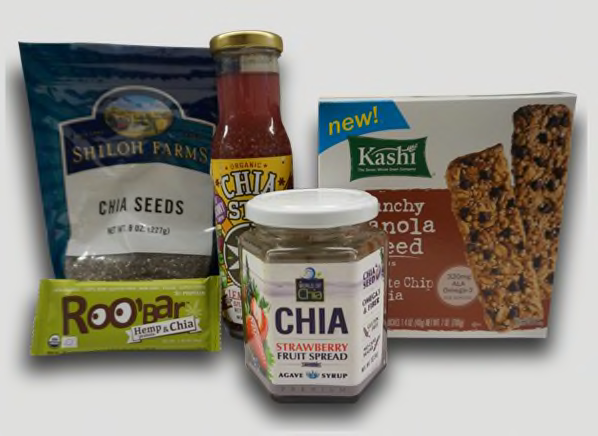Sign In

Menu
Suggested Searches
Recent Searches
Suggested Searches
Product Ratings
Resources
Chat With AskCR
Resources
All Products A-ZThe payment for your account couldn't be processed or you've canceled your account with us.
Re-activateMy account
Sign In
My account
Sign In


Tiny "superfood" chia seeds are being mixed into dozens of food products—cereals, snack bars, yogurt, and drinks—just to name a few. These little black and white gems, which come from a plant (Salvia hispanica) in the mint family, are pretty nutritious. For a 60-calorie tablespoon, you get 4 grams of fiber, plus antioxidants and some protein, omega-3s, and calcium.
Some studies have shown that chia seeds might help lower blood pressure, reduce blood sugar in people with type 2 diabetes, and cut the risk of heart disease and stroke. But they're not for everybody.
For example, men who have prostate cancer or who are at high risk for it should probably avoid large amounts because the omega-3s in chia seeds are in the form of alpha linolenic acid (ALA), and a high intake of ALA might contribute to prostate problems. And people with high triglycerides should choose only the Salba variety of the seeds, since other types might raise triglycerides.
Perhaps the most intriguing claim for chia seeds is that they can help with weight loss. That makes sense because they're high in fiber and have the unique property of turning into a gel when mixed with liquid, so they may make the foods they're added to more filling. But in one study where 76 overweight adults ate chia seeds before breakfast and dinner daily for 12 weeks, no one lost weight.
Find out whether your snack bar is a dud. Get more reviews in our Food and Drink Guide.
Our professional tasters sampled one brand of chia seeds, Shiloh Farms, straight up. The verdict: they're crunchy, but have very little flavor. When mixed with water they develop a consistency that would be good for thickening smoothies, soups, and sauces. A 3 tablespoon serving has about 150 calories, 10 grams of fat, 12 grams of fiber, 5 grams of protein, and 20 percent of the daily value for calcium.
It's one thing to take the seeds and mix them into your own foods, but another to buy the chia-seed-containing products you see on store shelves. We wanted to find out how they stack up nutritionally and how they tasted, so we looked at four chia-seed products from four manufacturers.
Consumer Reports' take: If you like the texture, mix chia seeds into salad dressings, smoothies, soup, and yogurt for a little nutrition boost. Read nutrition fact labels on chia seed-containing products carefully. Look at the food as a whole, checking calories, fat, and sugars. And scan the ingredients list; if chia seeds are toward the bottom, the product may not contain very much of it anyway.
—Linda Greene
 Build & Buy Car Buying Service
Build & Buy Car Buying Service
Save thousands off MSRP with upfront dealer pricing information and a transparent car buying experience.
 Get Ratings on the go and compare
Get Ratings on the go and compare
while you shop